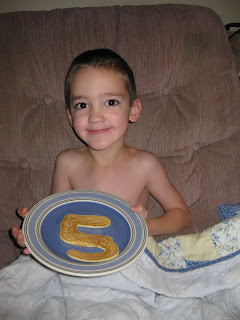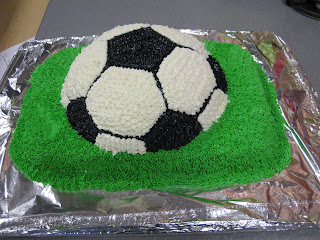Today we attended the dedication and grand opening of Rocky Hill Park. The park holds some deep family significance. The park is located on the homestead of where grandpa Lyle grew up. It was a neat moment. The picnic shelter is actually named for the Domrese family and holds a plaque with the Domrese name. We planned well and put the kids in warm clothes, but the wind was biting. Here are a few pictures and then some good historical information about the park and grandpa Lyle.
Cutting the ribbon to the park:
Here's a portion of what was written about the park and family:
In the early 1940's, the farm was purchased by Louis Domrese.When interviewing his son, Lyle Domrese, for this application he recalled that his father hired a carpenter in 1948 to build the barn. The 1,290 square foot barn, built in a rectangular shape, has a steep roof and one side is much shorter than the other. The interior arrangement of the barn features four stalls on one side of the building and open space on the other. Each stall has a window facing east to what was once a small pasture. A loft above the stalls housed hay for the farm animals.
Lyle explained that his father used the barn to protect the livestock, such as cattle and a horse. He said his father had several milking cows and also raised Hereford Beef Cattle. On the north side of the property near the barn, remnants of the cattle corral still exist. Lyle recalled that his father stored oats, wheat, and alfalfa in the barn before taking them to the mill.
In 1949 Lyle's father hired a contractor to build the modest two-bedroom house that exists today. Lyle's father had the original two story frame house, which was situated next to the rock wall well house, demolished because it was in a state of disrepair and lacked plumbing and possibly electrical.
Lyle Domrese was a teenager during the time his father owned the 310-acre wheat farm. His parents were divorced and Lyle would stay with his father during the summers to work on the farm. In the early 1940's farm laborers were hard to find due to the second world war. Lyle's father needed someone to drive the wheat truck from the farm to the Centennial Mill, located 17 miles away in the City of Spokane, to deliver oats, wheat, and alfalfa. Desperate, his father took fourteen year old Lyle to the police station to see if they would give Lyle a driver's permit. After pleading his case, the officer told Lyle's father that they would look the other way if they saw Lyle driving to the mill.
During the hot summer nights, Lyle slept in the back of the wheat truck to keep cool. When it was break time on the farm, Lyle enjoyed climbing on the Rocky Knoll, which is a hillside that lies directly in front of the barn. Once on top of the hill, he would lie on the grass and watch the clouds go by daydreaming about a life far away from the farm.
According to Lyle, gas was limited to 3 gallons a week during the Second World War. However, because Lyle's father was a farmer, he had access to an unlimited supply. During this time marmots, large ground squirrels, were causing damage to his father's wheat crop. Lyle's father offered him a deal. His father told him that for every marmot tail that Lyle would bring to him, he would get a gallon of gas in return. Lyle chuckled, "I became a pretty good shot."
While on his way to Centennial Mill with a load of wheat in 1945, Lyle Domrese was surprised to see cars stopped all over Appleway Avenue. Lyle recalled, "People were out of their cars dancing in the streets; others were honknig their car horns and flashing car lights." At the time, Lyle was confused about what was going on. While at the mill unloading wheat, he found out that World War II had ended.
According to Lyle, his father never stayed in one spot long and sold the farm in the early to mid-1950's. He had purchased the property for roughly $9,000 and had sold it to an accountant, George Kennett, for approximately $20,000.























































